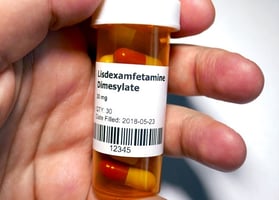Children who had been able to delay receiving a cookie or marshmallow treat at age 4 were found, at...
Food Pictures Switch on Brain's Reward Center and Appetite
 |
Other recent research in the area of eating disorders and their etiology has pointed to the possibility that some cases of obesity are due to a food addiction and may be linked to genetics. For more information on this theory, see Psychiatric News.
In fact, binge eating disorder (BED), which has been proposed as a diagnosis to be added to the next edition of APA's Diagnostic and Statistical Manual of Mental Disorders (DSM-5), might be considered a food addiction because a major criterion for it is loss of control over eating behavior. Yet how the mechanism of loss of control in BED compares with the loss of control in other addictions remains to be determined. To read more about this topic, see Psychiatric News.
(Image: Tish1/Shutterstock,com)





